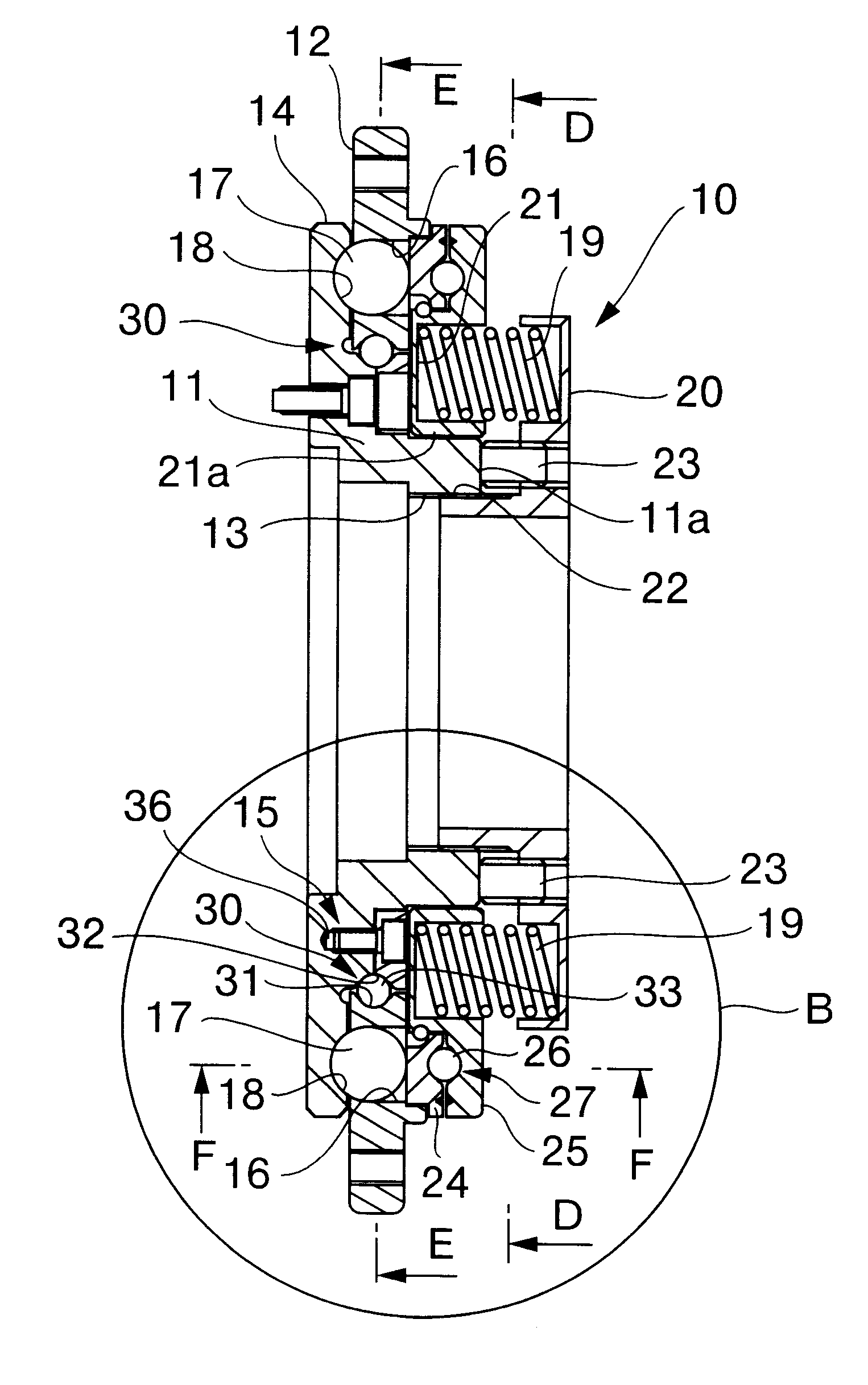Torque limiter
a limiter and torque technology, applied in the direction of shafts and bearings, bearing components, slip couplings, etc., can solve the problems of affecting the transmission of torque from the input side to the output side, and affecting the performance of the bearing
- Summary
- Abstract
- Description
- Claims
- Application Information
AI Technical Summary
Benefits of technology
Problems solved by technology
Method used
Image
Examples
Embodiment Construction
The following discussion provides a detailed explanation of the structure of the invention with reference to the attached figures.
The main components of torque limiter 10 are boss 11 which operates as the aforesaid torque input part, and flange 12 which operates as the aforesaid torque output part; the aforesaid boss 11 and flange 12 being in mutually facing orientation and rotatable around the same axis. Boss 11 is of disc configuration, incorporates center hole 13 formed therein, and has flange 14 formed on its outer perimeter. Flange 12 is of ring configuration whose inner circumference encompasses a radial perimeter formed around the center of flange 14 as means of forming rotatable joint 15.
Multiple orifices 16, formed through flange 12 at non-uniform intervals on the same circumference, serve as means of maintaining torque balls 17 therein, said torque balls 17 serving as the aforesaid torque transmission part. Spheroid concavities 18 are formed on the face of flange 14 at loc...
PUM
 Login to View More
Login to View More Abstract
Description
Claims
Application Information
 Login to View More
Login to View More - R&D
- Intellectual Property
- Life Sciences
- Materials
- Tech Scout
- Unparalleled Data Quality
- Higher Quality Content
- 60% Fewer Hallucinations
Browse by: Latest US Patents, China's latest patents, Technical Efficacy Thesaurus, Application Domain, Technology Topic, Popular Technical Reports.
© 2025 PatSnap. All rights reserved.Legal|Privacy policy|Modern Slavery Act Transparency Statement|Sitemap|About US| Contact US: help@patsnap.com



